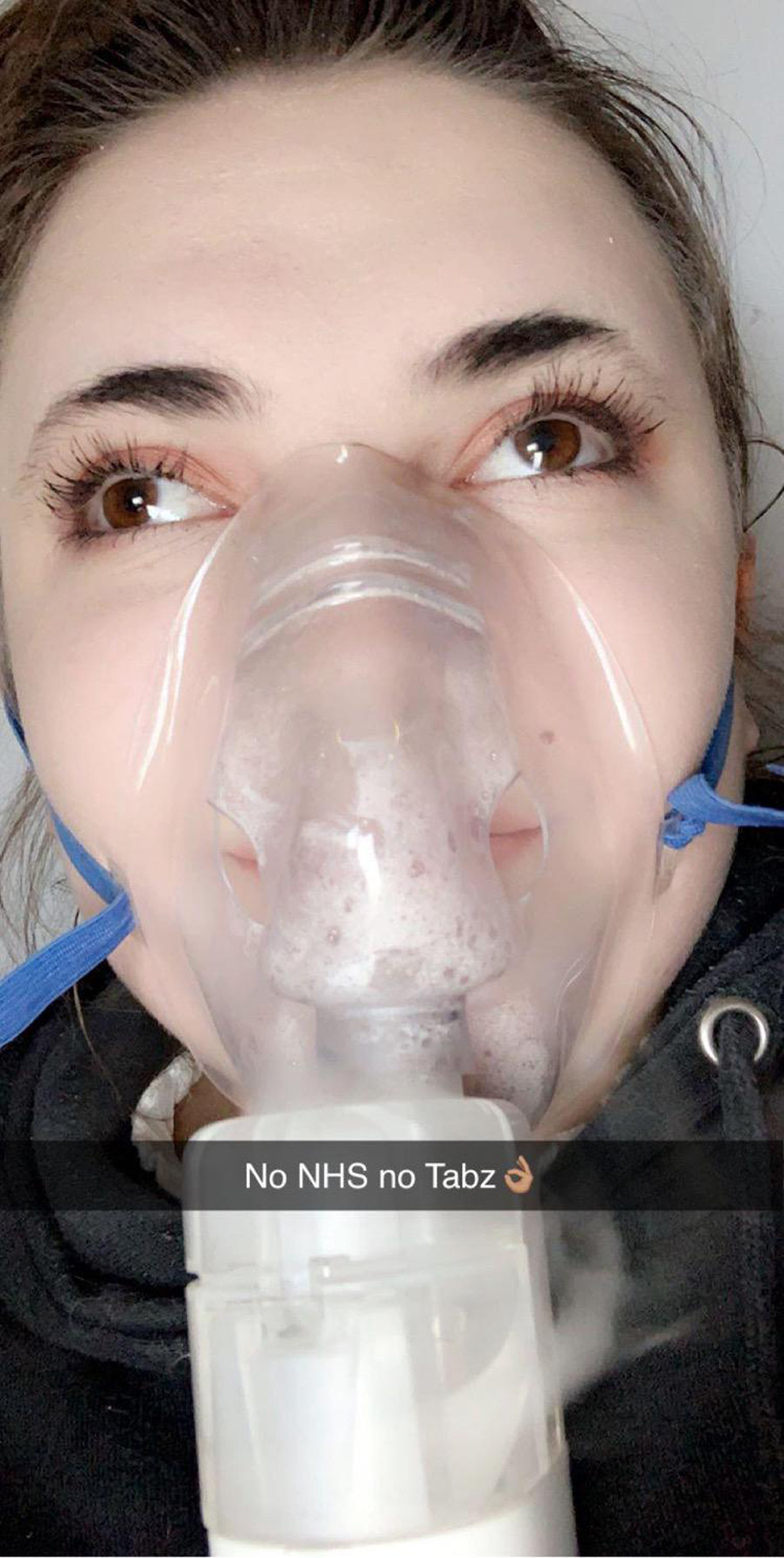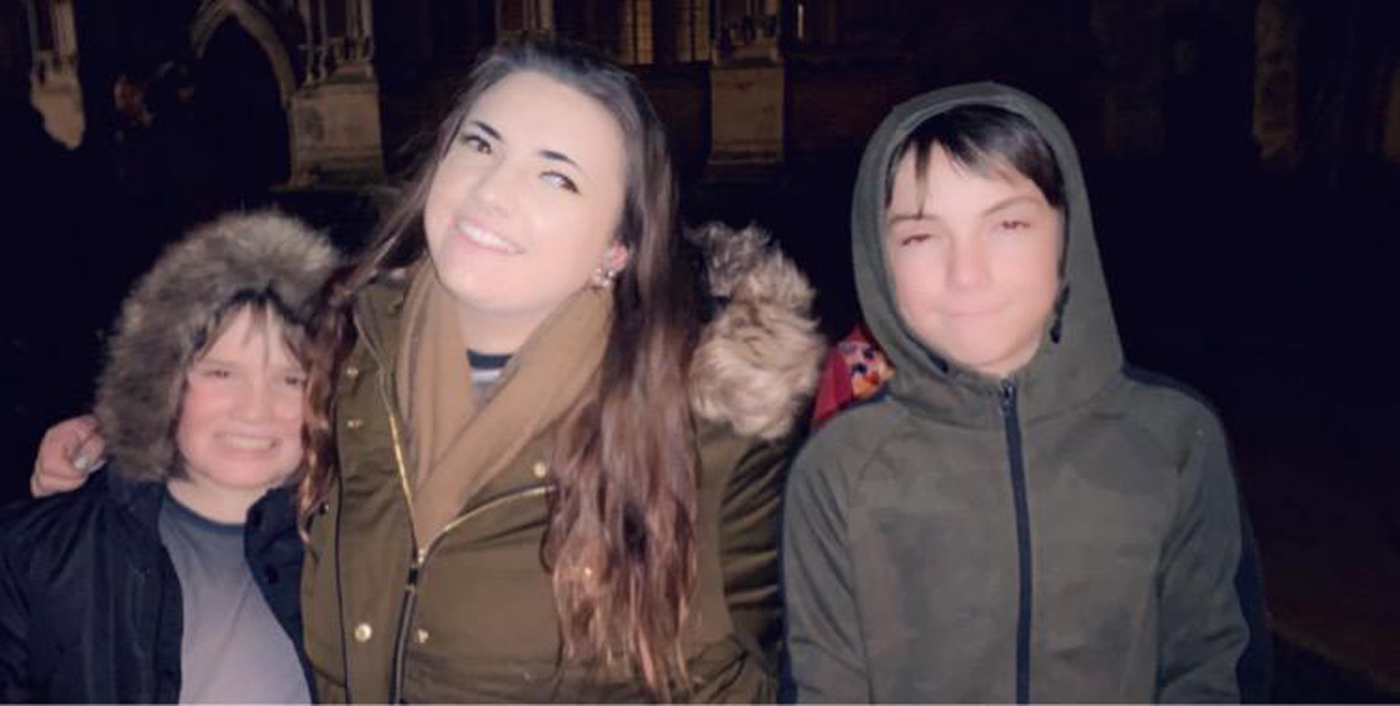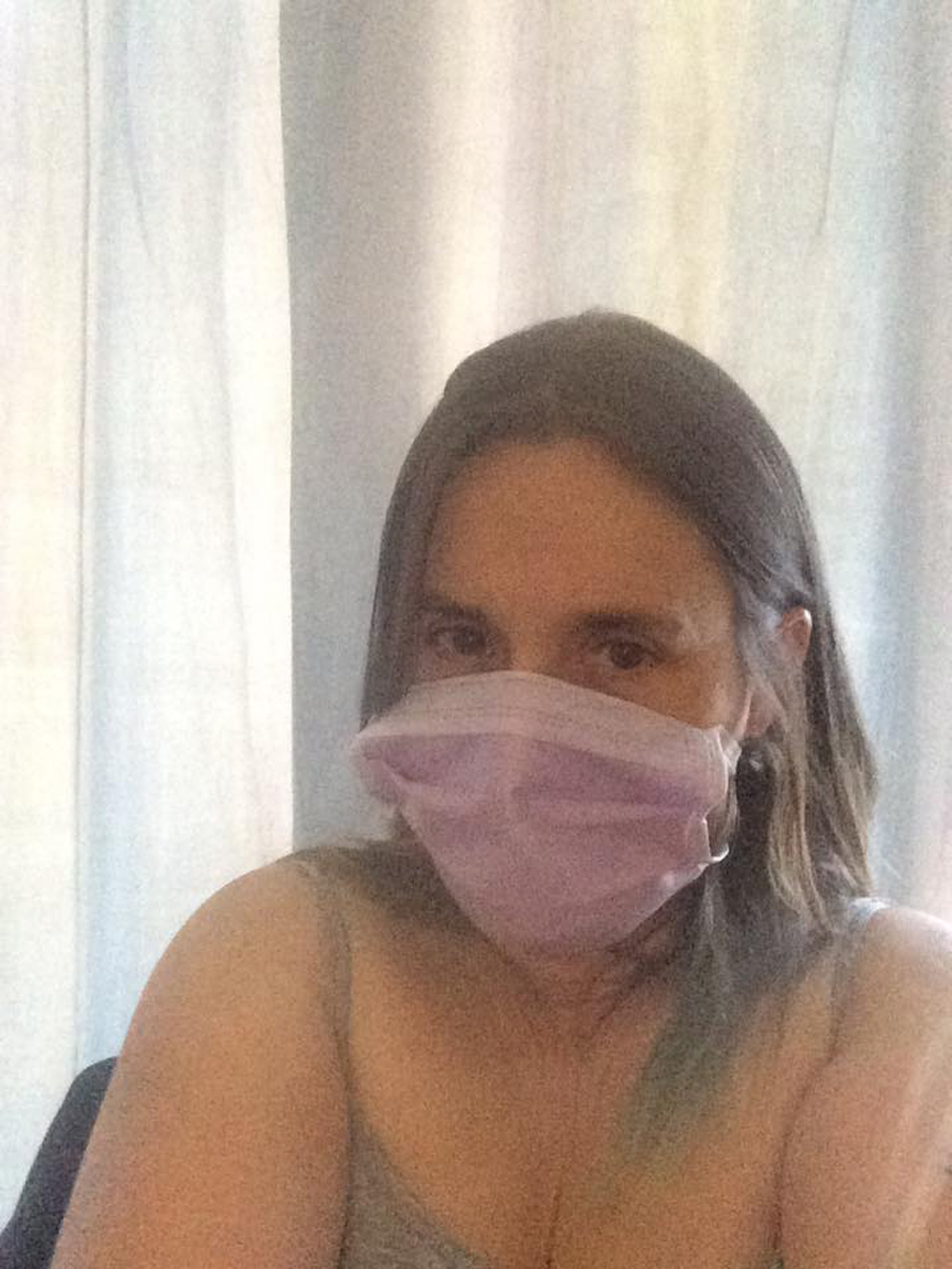A 22-year-old drama student lives in constant fear that an extreme form of asthma will kill her, as the slightest exertion can leave her bedridden and breathing “as if she is underwater” with “an elephant” sitting on her chest.

Tabatha (PA Real Life/Collect)
Just 17 when she was diagnosed with brittle asthma – a severe, little understood and sometimes life threatening form of the incurable lung condition – Tabatha Ketteringham can be bedbound for up to two weeks a month and needs a mobility scooter to get around.
Tabatha, of Wells, Somerset – who is studying drama at Bristol University and aspires to become a special needs drama therapist – is also scared that it will stop her from achieving her dreams, saying: “Some days, I’m not able to even put my shoes on, walk up the stairs, or have a shower, because it leaves me completely out of breath.
“I can be fine one minute and then deteriorate very quickly, to the point where I can’t breathe and have to go A&E, where I’ll be hospitalised for a couple of weeks because I’ve picked up a chest infection.”
When she is not hospitalised, Tabatha can still spend up to two weeks a month in bed, unable to do anything without fearing she will trigger an episode.
“There are some days when I can’t get out of bed. Those days it can be like there is an elephant sitting on my chest and like I’m trying to breathe underwater. It’s really hard to get through it, but I have learned my limits.”
She continued: “It’s something I will have to live with for the rest of my life and learn to manage. I found it quite hard to think about the future at first – about whether I’ll be able to have children or whether I have to rethink my career choice of being a teacher for kids with learning difficulties or a drama therapist.”
Tabatha first began experiencing serious health problems when, aged 13, she struggled to get over a bout of pneumonia and became reliant on an inhaler.
She recalled: “I kept getting recurring chest infections and had to stop doing all the activities I loved like dancing, gymnastics, horse riding and drama classes.”
Tabatha said: “I would struggle to breathe and become very breathless all of a sudden.
“At the age of 15, I was diagnosed with asthma and was given different inhalers and medication, but I didn’t respond very well.
“I started to have quite a few hospital admissions. Often I would be taken there in an ambulance, because I couldn’t breathe and my immune system was so low that I’d get chest infections. It was clear the medication wasn’t working for me.”
In 2015, aged 17, Tabatha was diagnosed with brittle asthma which, according to asthma.org.uk, can be life-threatening and affects around four per cent of asthma sufferers in the UK, causing more frequent attacks than for people with the milder version of the condition.
“I had a long period in hospital with blood clots on my lungs and a bad case of pneumonia, which is when they realised how serious it was and I got a diagnosis,” she recalled.
“I was scared, because I didn’t know what it would mean for me, but also relieved, as I’d kept being told it was normal asthma and it felt like finally someone was acknowledging it was more extreme.”
She explained: “But the realisation that I could actually die if I had a serious asthma attack was terrifying.”
Fortunately, her friends, her brothers Brandon, 13, and Finian, 11, and her mum Kirstin Sims, 51, a children’s entertainer and magician, as well as her boyfriend, Josh Parker, 22, a fellow drama student, all help to lift her spirits.
As well as having a different inhaler, Tabatha now takes steroids every day and antibiotics three times a week. She also uses a nebuliser up to four times a day -a machine which changes liquid medicine into a fine mist that can be breathed in through a facemask or mouthpiece.
Yet, despite the restrictions imposed on her life by her health, she still goes to university part-time, writes plays and short stories and works part-time in a restaurant.
“I try to get up every day and put my make up on,” she said.
“I work part-time in a restaurant where I have a special plan so I can work behind the bar or on the glasswasher so it is not too strenuous for me. My manager is very accommodating with my shifts. If I go to work I feel like a normal person, but it does wipe me out.”
Tabatha explained: “I stopped doing a lot of things like acting, which I loved, and can’t do much physical activity or exercise, because it puts me at risk of an attack.
“I have to use a mobility scooter if I go out, because walking leaves me out of breath and very tired.”
She also has long bouts when she cannot get out of bed, because her breathing is so laboured, or if she has caught a chest infection.
“I probably spend about two weeks out of a month in bed,” she said.
“Usually I’ll be there for a couple of days, then able to get up again.
“Every other week I’m going to the doctor to get some adjustment to the medication I’m taking and probably end up in hospital four or five times a year.”
“In the early mornings my lungs will have filled up with mucus, so it sits on my chest and makes me feel very wheezy,” she added.
But one of Tabatha’s biggest problems is with the general lack of understanding about her condition, with people dismissing it as ‘just asthma’.
“There’s a lack of understanding about how serious it can be. At times, I do get negative comments with people saying that if I lost weight it might help me, but they really have no idea what it’s like,” she said.
“People will try to relate to me, saying, ‘I used to have asthma as a child and used an inhaler,’ but it’s not the same.
“I’ve been posting videos on social media to try and raise awareness of brittle asthma, as I’ve even had nurses tell me that I should try a certain diet, but it doesn’t help. This is a serious lifelong condition that could kill me.”
Now her mum has launched a GoFundMe page to raise £3,000 to buy a special fan for Tabatha’s bedroom and an adjustable bed, which will allow her to sleep at an angle and stop the mucus collecting in her chest.
Kirstin said: “Tabatha has a special fan to help circulate the air in her room and reduce the risk of infection, or of an asthma attack being brought on by dust. Her condition is affected by the weather, too, so if it’s very hot and humid, it can make it worse for her.
“It’s been on for 24 hours a day during the Covid-19 pandemic, so we are trying to raise money for a new one. Tabatha is not entitled to any government help because she works part time, but the money is running out.
“We were fundraising for a new nebuliser, too, but my sister Verena and her husband David Fuller very kindly paid for that and it’s perfect, as she can take it with her when she visits friends.”
One of the top misconceptions about asthma is that the condition only develops in children. This is wrong. Asthma can develop at any time of life and can vary hugely in severity. Find out more about diagnosing asthma in adults:
Kirstin added: “It’s hard for Tabatha to do normal things, like go on holiday. We have to make sure she can travel with her nebuliser, that hotel staff know what to do if she needs to be taken to hospital and that they can accommodate a mobility scooter.
“She is just a 22-year-old girl who wants to be doing what everyone else at that age is doing. She is talented, bright and strong, and I’m so proud of the way she has handled this.
“We want to thank everyone who has donated so far, it’s amazing and means so much to us.”
To donate visit www.gofundme.com/keeping-tabatha-breathing
Tagged in Health Real Life Story







